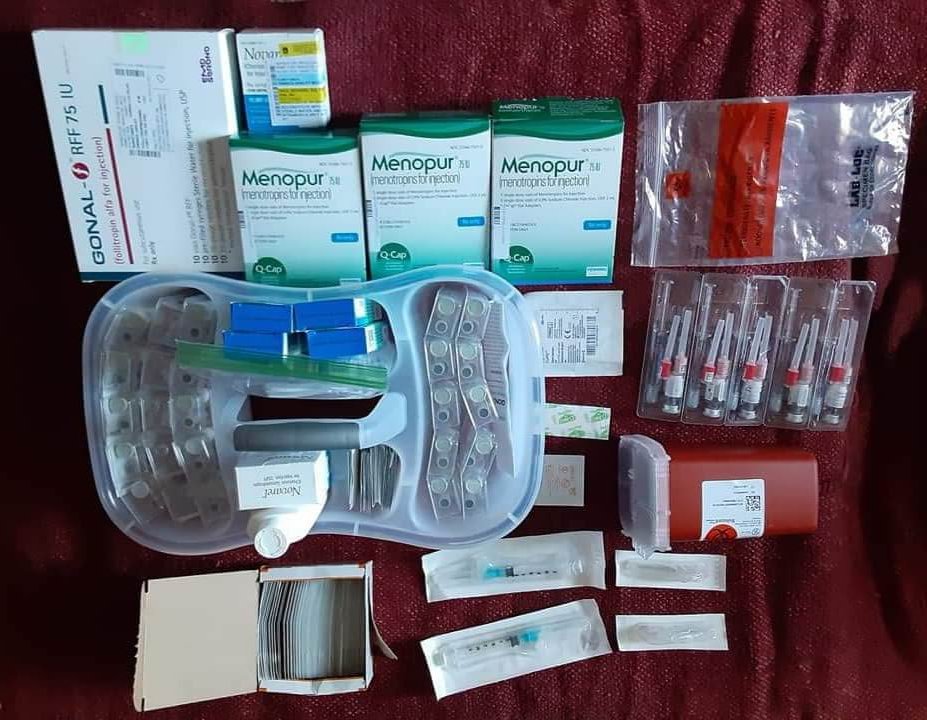Several Military Spouse of the Year (MSOY) winners are amplifying their voices around a common theme: infertility.
“A lot of people don’t know about these types of problems with family-building, which can lead to divorce, alcoholism and all kinds of issues,” said Ashley Owings, a former Navy reservist and National Guardsman. “We’ve been there and it was very hard; we’ve seen a lot of families suffer.”
Some studies show as many as 30% of female service members cannot conceive on their own. Male veterans, meanwhile, can experience sexual dysfunction connected to PTSD.
Both genders struggle with low libidos when on certain medications. Exposure to toxic chemicals, sexual assaults and long periods apart also play a role. And Blue Star Families’ latest survey revealed that 42% of active-duty members reported “the military created challenges to having children.”
It all adds up to a military infertility rate that is highest for the Army (101.7 infertility diagnoses per 10,000 soldiers) and lowest for Marines (50.4 per 10,000).
“Experiencing infertility was a lot of just figuring it out,” said Owings, the 2022 Fort Bragg Spouse of the Year. “It was a silent, sad battle.”
Speaking up
After two rounds of intrauterine insemination and two rounds of in vitro fertilization, Owings and her husband welcomed a son last June. Even though she was no longer childless after seven years of trying, she knew she wanted to make infertility part of her MSOY platform.
“A lot of people don’t know what’s offered and available to them,” Owings said. “Seeing how infertility can break somebody, we decided we wanted to take on that issue and make people see they’re not alone.”
Army Reserve wife Julie Eshelman feels the same. As the 2019 Unattached – Army Spouse of the Year, she gained valuable experience sharing her years-long fight to get pregnant. So when she won the 2022 Fort Leavenworth MSOY award, she knew she would continue to educate on the topic.
“I think it takes a lot of strength and courage to share your infertility story, and to do it collectively, alongside these other ladies, just empowers others that it’s OK to talk about these things,” Eshelman said. “If we’re not talking about it, we can’t normalize it and erase the stigma.”
Eshelman has made infertility part of her off-hours focus, volunteering for RESOLVE: The National Infertility Association and advocating for changes in Tricare’s fertility treatment coverage. Currently, military insurance only covers fertility treatments if the diagnosis is service-connected ― meaning that anyone with “unexplained” infertility, an estimated 15 to 30% of affected couples ― is on their own.
Homefront mission
The Eshelmans spent $20,000 to $30,000 for treatments resulting in the birth of their now 1-year-old Millie. The Owings paid $12,000 in pursuit of their baby boy. But Ohio National Guard wife Courtney Deady and her husband have spent upwards of $80,000 in their search to become biological parents.
Infertility, according to Deady, is “not a one-size-fits-all.”
“Adding to a family of two takes time, money, appointments, more appointments, more tests, frustrations, disappointments, joy and hope,” she wrote in an email. “… hope that the next time will work, even when all odds are against you. The emotional and financial burdens that can come along weigh heavy on service members and spouses.”
The Deadys rely on private insurance from Courtney’s husband, a master sergeant in a highly deployable unit, to bring the cost of fertility treatments down. She ― alongside Owings and Eshelman ― dream of the day when Tricare covers more for the nation’s military families.
“If our military community and their families have their needs fulfilled, [from] the infertility war to more-affordable means of treatments and options for adoption, our service members can truly focus on their military obligations, making the mission less muddy and a bit more clear,” Deady wrote. “A mission that is an uphill climb, and every infertility warrior family is trying to understand how to win that war.”
For now, the MSOY program has given each spouse a megaphone to keep infertility in the spotlight.
“It’s inspiring to see so many other people who are like, ‘We need to change this,’ who have said, ‘Yes I will come alongside you to show that infertility struggles are important,’” Eshelman said. “It’s something not only like military should take note of, but also Congress.”

